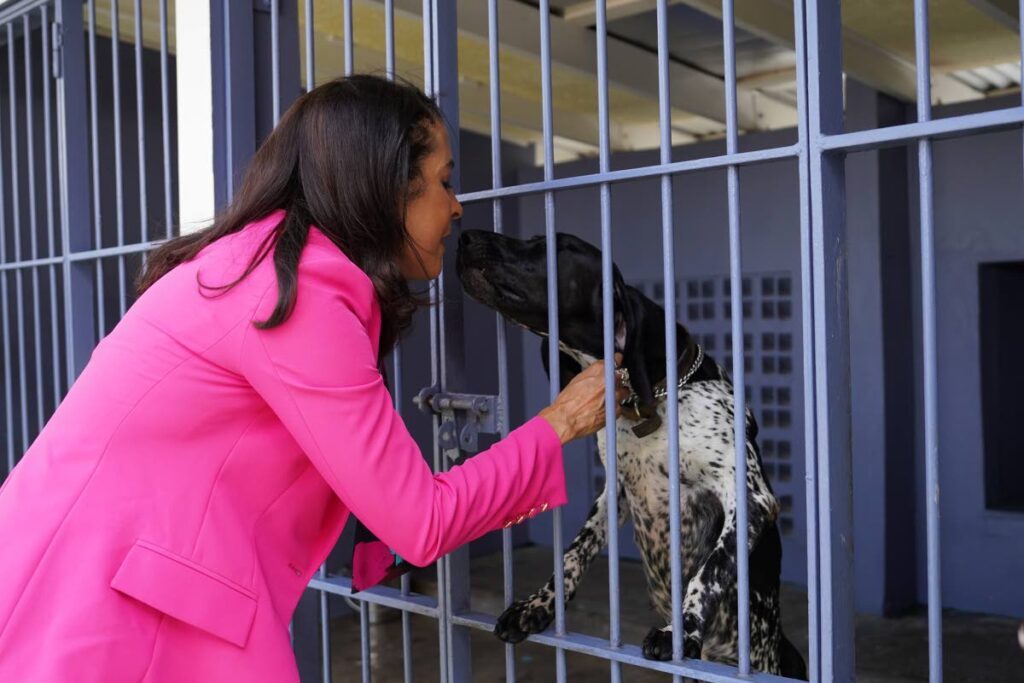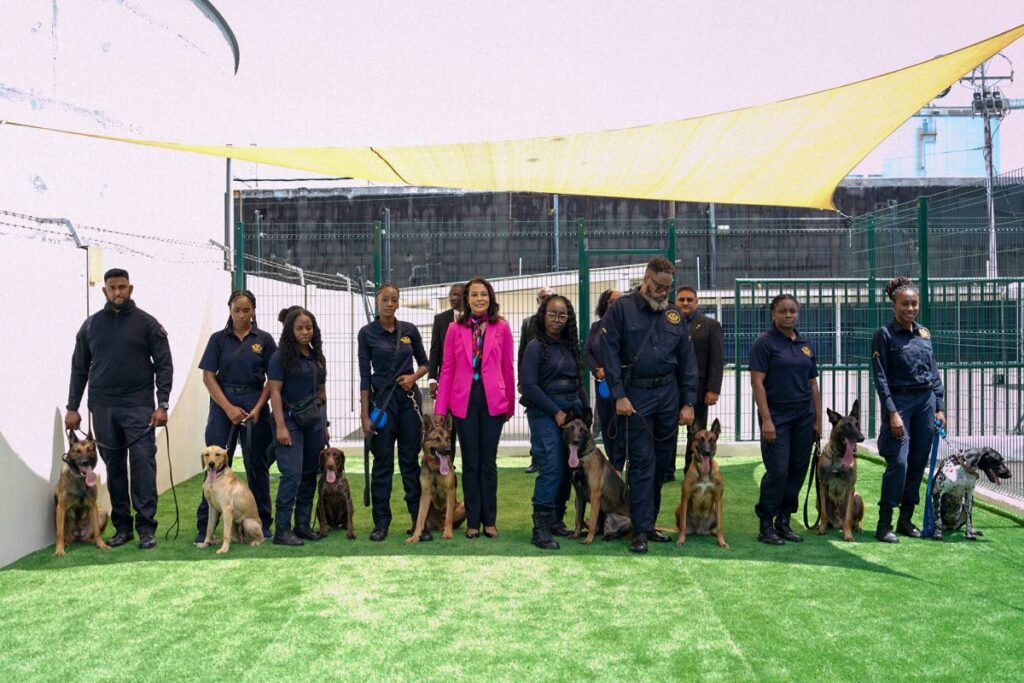US embassy helps improve conditions for national security dogs

THE US government has made several contributions to upgrade this country's national-security canine units.
In the most recent donation, on September 12, the Bureau of International Narcotics and Law Enforcement Affairs (INL), through the US Embassy in Port of Spain, provided a police canine named Dea, canine resources, and launched a canine emergency medical access plan for working dogs.
In a news release on September 12, the embassy said its donations will improve the conditions of working canines at various local law-enforcement agencies, as it continues to partner with Trinidad and Tobago to improve safety and security and reduce illicit trafficking.
US ambassador Candace Bond made the donation during a ceremony at the TT Customs and Excise Division (TTCED) kennel facility, Invaders Bay, Port of Spain.
She also handed over Dea, a two-year-old German Shepherd-Belgian Malinois mix, to the police Transnational Organised Crime Unit.
Dea joins Thijs, donated by the US government earlier this year, to bolster efforts to combat illicit trafficking, the release said.
Bond also announced, under the Caribbean Basin Security Initiative, the launch of a canine emergency medical-access plan, in partnership with the Wishing for Wings Foundation, headed by Newsday columnist Debbie Jacob.

The plan will offer 24/7 veterinary care for working dogs with field injuries, non-routine medical care, as well as a supplementary healthcare plan for preventative care needs.
Jacob told Newsday in a WhatsApp exchange on September 12, "Wishing for Wings is proud to be involved in this project."
She said an emergency vet network spread across TT is important.
"These dogs do important crime-fighting, dangerous operations where they can be injured or face life-threatening situations that need prompt medical attention.
"Canine officers need an emergency vet network in place to protect the nation’s government working dogs."
The embassy said Bond also handed over 80 first-aid kits to the Customs and Excise, Police Service and TT Prisons Service canine handler teams. This was done through a partnership with US pet supplier Chewy.
It said INL also donated training material, grooming kits, and operational gear to enhance the agencies’ capabilities, and supported TT Customs’ acquisition of six dogs and upgraded their facility to meet US standards.
The release said there are plans to refurbish the Prisons Service's kennels in the coming months through a co-operative cost-sharing programme.
Bond said, “Our dogs are much more than working animals. They are essential partners in law enforcement, aiding in detecting narcotics, firearms, and ammunition, guiding search-and-rescue missions, and providing security patrols. At the heart of the US government's working-dog policy is a commitment to ensuring animal safety and welfare.
“All these efforts weave together to showcase our unwavering commitment to the well-being of our canine partners, as well as our dedication to international co-operation and compassionate care.
"Let us uphold the same dedication and respect for our canine team members that they show us daily. Their well-being and effectiveness reflect our core values and our commitment to excellence in all our endeavours.”

Comments
"US embassy helps improve conditions for national security dogs"